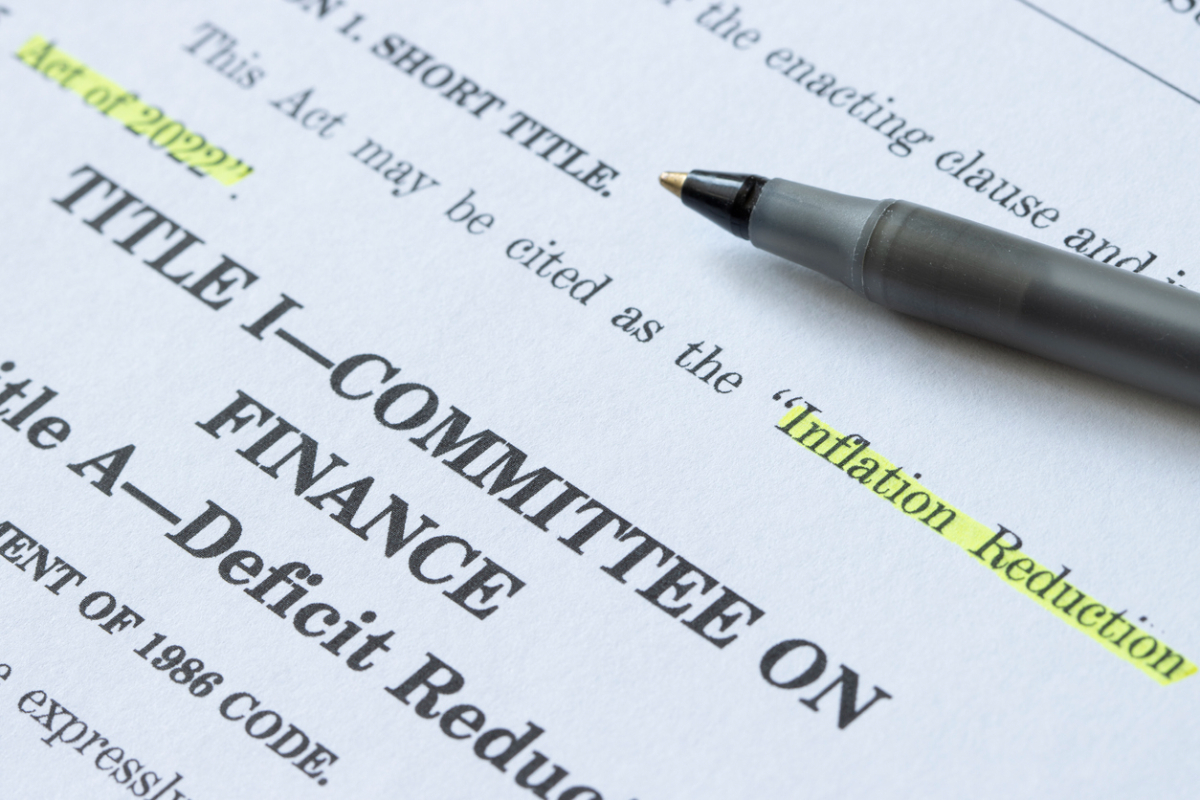On August 16, 2022, President Joe Biden signed the Inflation Reduction Act (IRA) into law. With it, among other things, the U.S. Government allocates over $400 billion for renewable energy projects and tax credits for decarbonization efforts over the coming decade. This is, to date, the most significant single investment in the sector. Now, one year has passed since the act’s inception. Treasury Secretary Janet Yellen praised the IRA as a “bold federal action” in her remarks regarding the upcoming anniversary. Yellen added: “Powered by the IRA, the President’s agenda has helped drive a massive boom (…) touching every corner of the country.” However, the Act has also received criticism from other countries.
What the Act Has Achieved
The main goal of the investments under the IRA was to reduce emissions of the U.S. economy to adhere to targets set in the Paris Agreement 2015. In an article published in the journal Science, researchers argue that the IRA has the potential to reduce emissions between 43 and 48% below 2005 levels by 2035. This is also supported by the consulting firm Moody’s, which estimates emissions to be reduced by approximately 30 percent by 2050 through the act. One element of the act is the tax credit for the adoption of electric vehicles. Because of these credits, the sales of EVs in the U.S. are steadily increasing and have achieved another record in the second quarter of 2023 with nearly 300,000 new EVs sold. Additionally, more than 270 new clean energy manufacturing facilities or extensions have been announced since the inception of the IRA one year ago, according to the Center for American Progress (CAP), an independent, nonpartisan policy institute.
A Renaissance of Manufacturing in the U.S.
The White House projects investments from private companies alone to be over $500 billion in sectors such as semiconductors, electric vehicles, clean energy, biomanufacturing, or heavy industry. This resurgence of manufacturing in the U.S. has since been called a Renaissance, as the U.S.-industry was once a leading manufacturing hub. A steady decline during the following decades followed the peak of 19.6 million jobs in the sector in 1979. Since 2000, the sector lost another quarter of jobs because industries increasingly moved overseas, according to the Senate (PDF). Because of the tax credits in the IRA, many companies have stopped or reversed relocating efforts to countries with cheaper labor. According to the CAP, the IRA promoted significant public and private investments in infrastructure and manufacturing jobs. It further estimates that the act created over 170,000 jobs last year. Jesse Jenkins, a professor at Princeton who analyzed the IRA’s impacts, projects in an interview with AP News that the full effects of the act will come from 2026 to 2028. According to Jenkins, the law will further increase investments in the clean energy sector in the coming years.
U.S.-Focus of the IRA Promoted Responses Abroad
Looking beyond the U.S. economy, multiples countries initially feared the IRA would render its economies uncompetitive compared to the U.S. Because the act is tax subsidies based, the EU, for example, raised concerns that companies could relocate to the U.S. to gain the tax credits for producing electric vehicles, among others. Despite early criticism, the IRA has successfully prompted the EU to respond with its measures to remain competitive globally and thus also made significant progress in European decarbonization efforts. The Green Deal Industrial Plan was implemented to level the playing field by easing rules for state aid, faster and simpler approval processes for clean energy projects, and secure trade agreements to bolster critical raw material supply chains. With the Temporary Crisis and Transition Framework, the European Commission loosened State aid rules further to foster energy transition and prevent the flight of green technologies from Europe. This is also what the Bertelsmann Stiftung urges policymakers to pursue further. In a report (PDF), the foundation argues that the IRA’s impacts on the climate are essential and beneficial to the whole world because of the U.S.-economy’s importance. Still, export-orientated countries like Germany must react with economic policies. Especially the withdrawal of capital as part of an investment relocation to the U.S. presents a development that could endanger growth and competitiveness in Germany in the medium and long term, the foundation argues.
Despite its achievements, the full impacts of the IRA are yet to be seen, especially in countries abroad.
Photo: iStock/hapabapa


